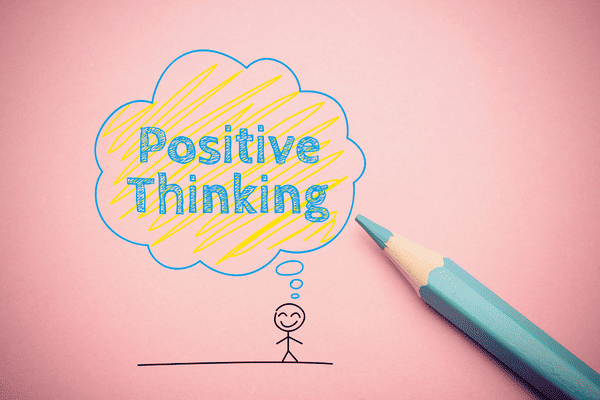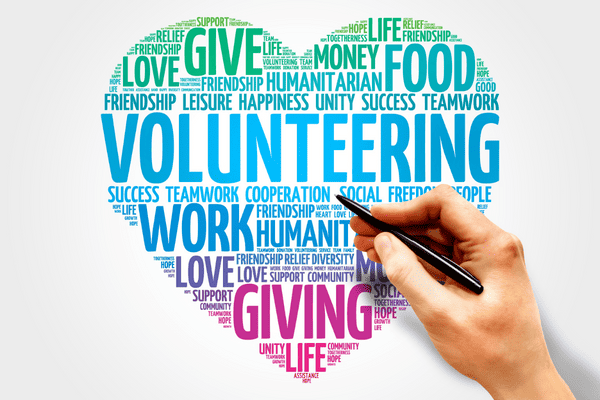Last updated on August 25th, 2025

Do you ever feel like you lack the self-confidence to take on life’s challenges?
Do you ever find yourself losing confidence in your abilities?
Do you experience negative thoughts that constantly bring you down?
If the answer is yes, then fear no more! This article is for you!
We all know that having good self-confidence is essential to success in life. But if you don’t have it, it doesn’t have to be an impossible dream.
You can learn how to boost your self-confidence in as little as 7 days with just 7 simple habits!
In this article, we’ll take a look at how small changes every day can quickly add up to big confidence gains over time.
What causes lack of self-confidence?
Lack of self-confidence can be caused by a variety of factors, including: past failures or trauma, fear of failure, fear of the unknown, negative self-talk or comparisons to others, negative feedback from family or friends, low self-esteem, lack of self-awareness, and even physical exhaustion.
It can also be caused by an environment of criticism or insecurity, feeling overwhelmed or stressed, or feeling like you don’t fit in.
What are the signs of low self confidence?
Self-confidence can have a huge impact on our lives, yet many of us struggle with it.
Low self confidence can affect our relationships and career, as well as our physical and mental health.
It might not be easy to recognize when our self confidence is low, but understanding the signs can help us identify when we need to take action.
1. Low self-esteem
Low self-esteem can make us feel like we’re not good enough or that we don’t measure up to others. It can be a sign of poor mental health, and it often leads to feelings of sadness and worthlessness.
2. Poor body image
Poor body image is an unhealthy view of one’s own physical appearance which can cause deep psychological distress and anxiety.
It can show up in ways like avoiding social situations, dieting too much or working out too much, avoiding mirrors, feeling ashamed or disgusted by one’s body, or making constant negative comparisons between oneself and others.
3. Inability to take criticism
Individuals with low confidence often find it difficult to accept that they may not be perfect; they may use defensive tactics such as getting angry or making excuses when someone points out a mistake.
4. Avoiding social situations
People who lack self-confidence will often avoid attending events with friends or family members, as well as any type of gathering that involves being around strangers.
They may also feel uncomfortable talking to people they don’t know very well or expressing themselves in front of others.
5. Low assertiveness
People who lack confidence often struggle to communicate their needs and wants, causing them to be taken advantage of or not have their voices heard.
Low assertiveness can manifest itself in a variety of ways, including allowing others to make decisions for them, being too quiet during conversations or meetings, avoiding confrontation, and feeling scared to express opinions or feelings.
6. Fear of failure
Fear of failure is one of the most common signs of low self confidence.
It can manifest in many different ways, from an inability to even attempt a task that may lead to failure, to an obsessive need for perfection in order to avoid disappointment or criticism.
Those who suffer from this fear are often very hard on themselves and struggle to take risks or try new things.
They may feel like they don’t deserve success and that any attempts at it will ultimately be fruitless.
People with a fear of failure might spend hours agonizing over decisions and ruminating over their mistakes due to feelings of guilt or shame.
They may also procrastinate excessively, as they are unable to bring themselves to face the possibility of not being successful.
7. Perfectionism
Perfectionism is an attribute that can be both beneficial and detrimental to one’s self-confidence.
On the one hand, striving for perfection can help someone achieve their goals with greater precision.
On the other hand, it can also lead to unrealistic expectations and feelings of self-doubt when those expectations aren’t met.
People who suffer from low self confidence often struggle with perfectionism as a result of their insecurities. It’s important to recognize the signs so you know how to address them effectively.
Some signs of perfectionism that are linked to low self confidence include difficulty making decisions, fear of failure, procrastination, anxiety or depression, difficulty accepting compliments or criticism, setting unattainable standards and overly focusing on mistakes rather than successes.
8. Difficulty making decisions
Low self-confidence can often manifest itself in a variety of ways, one of which is difficulty making decisions.
Those who lack self-assurance may find themselves frozen when it comes to making even the most basic of calls.
This can lead to an overall feeling of being overwhelmed and out of control.
People who don’t have much confidence may not be able to figure out which path is best for them when they have too many options.
This can also happen when presented with conflicting advice from multiple sources.
Inability to make a decision can be extremely frustrating and stressful for those suffering from low self-esteem, and it can have far-reaching consequences in their personal life, relationships, work environment, finances, and so on.
9. Anxiety
If you’re struggling with low self-confidence and don’t know what to do about it, one thing you should look out for are the symptoms of anxiety.
People with low self-esteem often feel anxious because of the negative thoughts and judgments they have about themselves.
They may also fear failure or rejection from others or find it difficult to make decisions because of their doubts about themselves.
10. Depression
Low self confidence can be a sign of depression and should not be overlooked or minimized.
Seven Habits to Build Self-confidence in 7 Days
Day 1: Practice positive self-talk and positive thinking
One of the most important habits to help boost your self-confidence is to practice positive self-talk.
The first step in practicing positive self-talk and positive thinking is to become aware of when negative thoughts are happening.
Once you recognize those thoughts, it’s important for you to challenge them with more realistic and helpful perspectives.
Instead of focusing on what you don’t have or can’t do, focus on what makes you unique and special.
You should focus on your strengths and good qualities instead of what you think are your flaws or weaknesses.
Start each day with positive affirmations. Acknowledge your strengths, accomplishments, and the things that make you unique.
Replace negative thought patterns with positive ones, like “I am strong and capable” or “I deserve success.”
Day 2: Start a healthy habit, make healthy choices, practice self care
Making healthy choices is one of the best ways to improve your self-confidence and overall well-being.
Regular exercise and healthy eating are two of the most important things you can do to live a healthier life and feel better about yourself.
Regular physical activity helps to boost your mood, which in turn will boost your self-confidence.
Exercise releases endorphins, which can help boost your self-confidence.
A regular exercise routine can be anything from taking leisurely walks around the block or going for a swim each week.
Eating nutritious meals is also important for both physical health and mental wellbeing.
Aim for balanced meals that include plenty of fruits, vegetables, lean proteins, whole grains and other healthy foods.
Don’t forget to drink lots of water too!
Self Care: Taking care of yourself is essential for boosting your self-confidence.
Practicing self care can also help you feel more connected to yourself while increasing your feelings of worthiness and self-esteem.
Practice self care activities such as meditating or journaling on a daily basis in order to reduce stress levels and boost confidence levels.
Make time for yourself: Spend at least 30 minutes each day doing something that you enjoy.
Spending time alone allows you to connect with yourself on a deeper level and process your thoughts and feelings.
Spend time engaging in activities that you enjoy and that help you relax.
In summary, getting into good habits that are good for your body, like going for a run on the weekend or eating a piece of fruit first thing in the morning, is a great way to boost your sense of self-worth.
Make sure you are getting enough sleep, eating healthy meals, and engaging in activities that make you happy.
You’ll be able to move on knowing that you’re making progress toward your goals.
Day 3: Dress to impress
It’s no secret that how we dress can have an effect on how others perceive us and, in turn, how we feel about ourselves.
From the clothes you choose to wear to your hairstyle and accessories, it all matters when it comes to projecting a confident image.
When you look your best, it helps boost your self-confidence and makes you feel more attractive.
Taking time to dress nicely can make you feel more confident and attractive.
Always try to look your best. If people see you wearing torn, old, or faded clothes, it will make you feel bad about yourself.
Taking a little extra time each day to choose flattering, well-fitting clothes and the right accessories for the occasion will not only make you feel good about yourself, but it will also help you express yourself better through fashion.
Feeling good about your appearance is an important part of feeling good about who you are as an individual and being able to carry yourself with poise and grace in any situation or environment.
If you want to look good, you don’t have to spend a lot of money on expensive designer clothes. When you go shopping, buy clothes that are not expensive but still look good.
You’ll have less clothing, but the clothes you do have will make you feel good every time you step outside.
The most important thing about what you wear is how it makes you feel.
Day 4: Make a List. Acknowledge achievements and celebrate successes
It is important to acknowledge your achievements and successes, no matter how small they may seem.
Making a list of all the things that you have done, or that have gone well for you, can help remind yourself of what you are capable of.
When you celebrate your wins, you reinforce good behavior and boost your confidence.
Start by writing down any big or small achievements over the past few weeks or months.
This could include getting a promotion at work, passing an exam, or completing a project on time.
Even something as simple as trying something new can be added to the list!
Feeling proud of yourself is an important part of boosting your self-confidence, so be sure to take full credit for everything on your list.
Set small and achievable goals, and celebrate when you reach them.
Take small steps. Focus on small successes and celebrate them. Don’t expect perfection.
Believe in yourself. Believe in your abilities and remember that you are capable of achieving great things.
Day 5: Challenge yourself. Get out of your comfort zone
Everyone feels more comfortable in their own familiar environment, but it’s important to take risks and try new things from time to time.
The more you push yourself outside of your comfort zone, the more confident you will be in confronting new challenges.
Take Risks: Taking risks can be scary, but it can also build your confidence. Take small risks in your daily life, such as trying something new.
Set Boundaries: Setting boundaries allows you to take control of your life and prevents people from taking advantage of you. Respect yourself and your time by saying no when you need to.
Get organized: Make sure that you have a plan for the day and that your workspace is organized and clutter-free.
Day 6: Find support and connect with others
It can be difficult to reach out for help, but it is so important to realize that you are not alone in your struggles.
There are many supportive communities online that offer the opportunity to connect with others who understand what you’re going through and have been in similar situations before.
These networks can be a great way to get help and advice from people who have been through similar things, or just to talk to someone without being judged.
Connecting with others can help build confidence by providing a safe space to open up and express yourself while also offering words of encouragement from friends as well as strangers who are there to lift you up when needed.
Surround yourself with positive people. Spend time with people who make you feel good about yourself and can offer support and encouragement.
Being around people who support and encourage you can help you feel more confident.
Day 7: Practice gratitude and volunteer more often
It’s important to prioritize time dedicated to being grateful for the things you have in life, as well as volunteering regularly in your community or with your favorite charity organization.
By taking the time to practice gratitude on a daily basis, you will be able to see how far you have come since starting your journey.
Not only that, but by giving back through volunteer work, you can make a positive impact on others while also developing strong feelings of worthiness within yourself.
Volunteering can make you feel better about yourself in a number of ways, including:
- Volunteering can help you learn new skills and improve the ones you already have.
- It could show you that people care about your work and ideas.
- It might also help you understand both what you can do and what you can’t do.
- It gives you the chance to help other people and get thanks from them in return. You’ll feel better and have a better understanding of life.
Taking meaningful action toward something bigger than yourself can be extremely effective in boosting low self-esteem.
Write down all the things in your life that you are grateful for right now. This list will show you that there are many things in your life that are important and make you happy.
Make sure you can always see your lists by putting them in a prominent place in your home.
Conclusion – How to boost your self-confidence in 7 days
We have learned how to boost our self-confidence in just 7 days with 7 simple habits.
If you do these things every day, you will see a big difference in how you feel about yourself very quickly.
The longer you use these strategies, the more confident you’ll feel in your new skills.
It may take dedication and practice, but these steps will surely make you feel more empowered and secure in the future. So go ahead, give it a try – you won’t regret it!
Ready to makeover your lack of self-confidence? Stop hesitating and start transforming today with Pheel Pretty’s 7 habits to boost your self-confidence in only 7 days! Take the opportunity now and see yourself soar to a newfound level of confidence in just one week.
Don’t settle for less – break through barriers, gain clarity and move forward into success!




